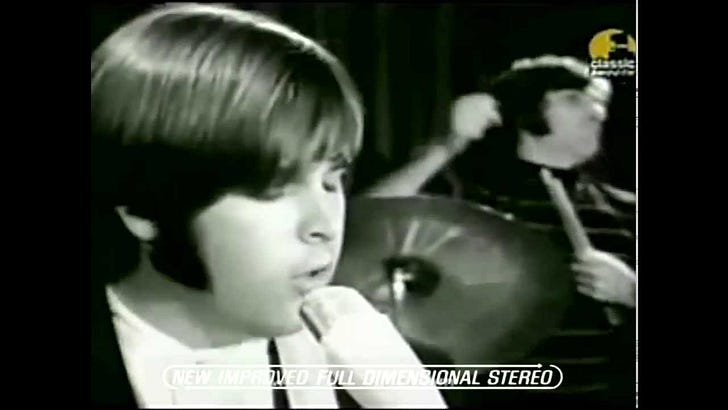I’m waiting for my eagle-eyed editor to send me his notes on last book. Over the years he’s saved me a bundle of embarrassing mistakes. Here’s my favourite example. I had written: The feast hall was swept clean of filth and vermin, fresh rushes were lavished upon the floor and aromatic oils poured into bowels to disguise sour odours. No matter how much I looked I could not see the typo. Luckily, he got in touch and pointed out the word such read bowls.
So while I’m awaiting his notes on my misspellings, confusion of pronouns, wrong dates and contradictions I’m starting on a new book. It’s working title is Hinterland.
People often ask me where I get the ideas for my books – and this has given me an idea for some future Substack posts. While I’m working on the first draft of Hinterland, I’m going to talk about the process of writing. I’m not sure if this is an act of narcissism or an honest attempt to inform my readers. Maybe it’s a bit of both. Any comments you have will be very welcome but please don’t start them with ‘Dear vain old narcissist.’
So without further ado, I shall say where I got the idea for the book.
Since my wife’s passing I’ve noticed numerous things which make me wonder if Hamlet was right when he said: ‘There are more things in heaven and earth, Horatio, than are dreamt of in your philosophy.’
I’m a great fan of the BBC’s programme In Our Time where Melvyn Bragg talks with leading experts about a variety of topics. If you’ve not heard them please click on the link at the end of this post. I usually listen to them while eating my lunch and a couple of months ago I listened to the broadcast on Fairies with his guests, academics Juliette Wood, Diane Purkiss and Nicola Bown.
One passing comment caught my attention. It went something like ‘maybe fairies are just creatures of another dimension.’
Bingo, I had the germ of an idea. What if things that go bump in the night or shadows you glimpse in the corner of your eye are flotsam from a different dimension? Perhaps creatures from over there might conceivably slip through the boundary to say hello.
When I was young I was a great fan of the TV series My Favorite Martian and Dr Who. I also watched newsreels of rockets climbing to the sky and the race for the moon. These events felt as different from my world as the Martian and the Dr. If Yuri Gagarin could circle the globe and Patrick Troughton travel through space and time then why not others? So, my mind has always been primed to think about other worlds, other creatures and other dimensions.
When we were 13, my friends and I spent our woodwork lessons sitting in the wood-store rather than doing any woodwork. We sharpened our thoughts rather than carpentry tools. We chatted about astronomy, theology, physics, the meaning of life and girls. We seriously began to doubt all we had been taught about religion. The teacher was quite content to leave us alone for the whole year; I never sawed more than two pieces of wood.
Abiding topics of conversation were ghosts, the supernatural and aliens from outer space. A particular fascination for me was where the universe would end. What would mark it off, what would be the boundary? A huge brick wall, a wicker fence, a giant police constable saying No entry, an endless sticky web?
Now, I’m intrigued by astrophysics, quantum mechanics and multiple universes although I barely understand a nano-particle of what I read. One idea in particular grabs me. It’s that everything around us: a brick wall, a table or the chair you’re sitting on are not actually solid. They are vibrations. Not solid, not immutable, but busy fields of whirring vibrations. And so are we, presumably. The Beach Boys were right all along.
It appears that we live in a constantly changing shimmer of vibrations. If there are multiple universes, they may consist of slightly different vibrations to our own and not quite on the same wavelength. But what if the boundary between the two sometimes slips?
So these ideas are going to be the focus of my new novel. I immediately populated it with different characters and a rudimentary plot line. Amazingly for me, it only took two or three working titles to come up with Hinterland.
The first thing I had to decide was when to set it. I pondered making it current day but felt that anything I write would get overtaken by developments in physics that are way beyond my understanding. Or maybe the 1960s when people were exploring different worlds, both literally and metaphorically.
In the end, however, I decided to set the book in the latter decades of the nineteenth century. At that time, Britain, Europe and the western world were lost in their own borderlands; it was the swivel point between an older age and the modern one. Most people still lived as their forebears had, doing the same work, eating the same food, rarely travelling far from home and then on foot, by horse or on trains. Yet these years saw the invention of the telephone, the electric bulb, the gramophone, the car and skyscrapers. Working class political forces became more powerful and women began to demand equality. Many countries made education compulsory and there were major medical advances.
The United States fought a bloody civil war, Italy and Germany were created, Japan modernised, Spain lost most of its empire and Africa was carved up amongst the European powers. It was definitely a time of transition – an ideal time in which to set a novel about the boundaries between here and there.
https://www.bbc.co.uk/programmes/b006qykl




Brilliant! Glad you inspired by all the signs! 😁
Inspiration comes from the oddest things at the strangest of times.